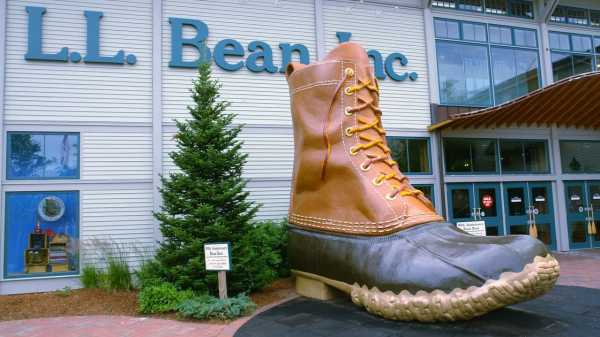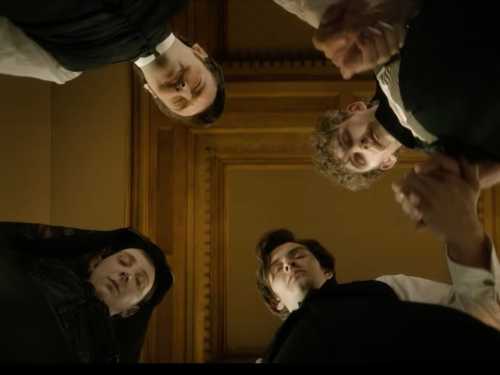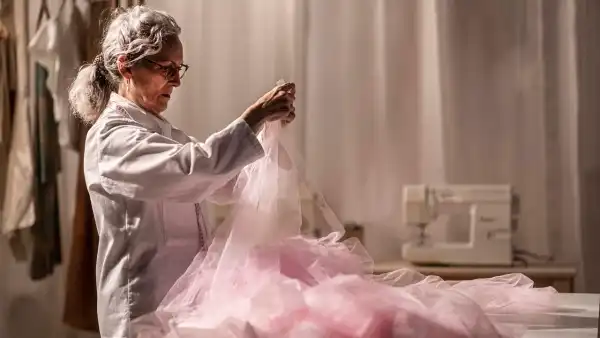
For anyone who grows up in Maine, L. L. Bean, which was founded in 1912,
is less an outdoor-apparel company than it is a public utility. Its
flagship store, in Freeport, a handsome coastal town with a string of
outlet stores on its main street, is one of the few buildings in the
state, save a few rest stops on the Turnpike, which is always open. At
any hour on any day, the lights are on—meaning that at 2 A.M. on a
random Saturday in April, you are likely to find an odd community of
insomniacs, loners, and stoned teen-agers with nowhere else to go, all
wandering the aisles, poking at fishing rods, hiking packs, and wool
sweaters. It is the institution in Maine that appeals plainly to
tourists yet also retains the good will of the locals, and even
engenders in them a sense of pride. In addition to employing thousands
of Mainers, the company hosts free outdoor concerts in the summer,
brings real reindeer to the parking lot at Christmas, and stocks a fish
tank with trout for kids to terrify on the other side of the glass. But,
perhaps more than anything else, the fondness that Mainers have felt
toward L. L. Bean has owed to the company’s famous no-questions-asked
return policy, whereby any product was essentially guaranteed for life
and no reasonable return would be refused.
This policy has, over the years, set the company apart from its
competitors, and led to some odd sights in the customer-service line.
Once, I stood behind an older man who produced for an employee a handheld
sonar fish-finder that clearly predated my birth, and which appeared to
have been sold no later than Ronald Reagan’s first Presidential term.
This handy little device had no doubt given the man decades of reliable
service, and yet, as he explained plainly to the employee, “It broke.”
No reasonable person would expect a fish finder from the eighties to
last into its fourth decade, but L. L. Bean has a guarantee, and so fair
is fair. The employee smiled gamely and accepted the return. At other
times, especially around Christmas, I’ve seen people arrive at the customer-service counter with bags full of old gear, presumably ready to return it for
store credit in order to make new holiday purchases. A member of my
family, who will go unnamed, once scoured the house for discarded L. L. Bean
items, and turned them in toward credit for a new bag. In
middle school, there was a minor crime ring associated with kids
stealing L. L. Bean backpacks and turning them back in at the store.
It seems that such stories were not particularly rare. On Friday, on Facebook, L. L. Bean announced a change to its return
policy. “Increasingly, a small, but growing number of customers has been
interpreting our guarantee well beyond its original intent,” the
statement reads. “Some view it as a lifetime product replacement
program, expecting refunds for heavily worn products used over many
years.” From now on, customers will have just a year to return
items—and will need to provide proof of purchase. After that period, the
statement reads, “we will work with our customers to reach a fair
solution if a product is defective in any way.” Put another way: the
fish-finder guy had better have a pretty good story or meet with an
employee who is in a particularly good mood if he wants store credit now.
L. L. Bean’s own official company history centers on the idea that not
everything is perfect the first time: of the hundred hunting boots that
the founder, Leon Leonwood Bean, first sold, ninety of them were
returned due to flaws. The responses to the policy change have run from
anger (“your founder would be
disappointed”!) to
chastisement of fellow-shoppers (“this is why we can’t have nice things”) to
a general mourning of the end of an era. Below the announcement on
Facebook, however, there has also been a surprising amount of reserved
and reasonable understanding, the kind of thing that the company has,
until this point, extended to its customers—an expression of, Well,
that’s a shame, but we get it. No problem.
Even so, it is hard not to feel a bit of sadness at the change. For
Mainers, it was comforting to think that the company made so much money
that it could sustain its rather insane policy—that whatever losses it
might take on returns it more than made up for in sales, and that the
store represented a kind of retail utopia. The reality has been a bit
more complicated. Last year, the company was dragged into the fractious
real world after Donald Trump instructed his followers on Twitter to
shop at L. L. Bean because one of its board members, Linda Bean (the
granddaughter of Leon), had backed
him;
in response, Trump opponents organized a boycott. For the past few
years, the company’s sales have been flat, according to the Bangor
Daily
News,
and, in January, it began offering buyouts to its employees, looking to
cut its full-time workforce by ten per cent.
Even if it seems to have failed as a business model, L. L. Bean’s return
policy was treasured largely because it reflected the values and
characteristics that we like to celebrate in ourselves and each other as
Mainers, ones that we may not always live up to but to which we might
aspire—traits like honesty, good nature, and a mind-your-own-business
ethos in which asking someone to explain himself is tantamount to
calling him a liar. The L. L. Bean policy was the ethics of being a good
but appropriately distant neighbor: we don’t care how old your boots
really are, or what actually happened to that backpack, or why you
suddenly are dissatisfied with a decade-old fleece. You don’t have to
grovel or lie or tell a pretty story—you probably have a good reason for
what you’re doing, and, either way, we don’t need to hear it. It was an
odd corporate experiment in believing the best in people; now that it’s
over, it seems crazy that it lasted as long as it did.
Sourse: newyorker.com






